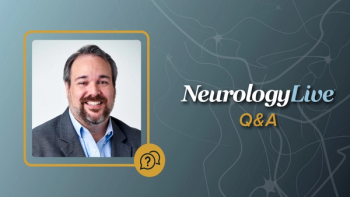
Benjamin Greenberg, MD, MHS, a nationally recognized neuroimmunologist, spoke about the clinical impact of the latest NMOSD recommendations and their implications for diagnosis and care.

Benjamin Greenberg, MD, MHS, a nationally recognized neuroimmunologist, spoke about the clinical impact of the latest NMOSD recommendations and their implications for diagnosis and care.
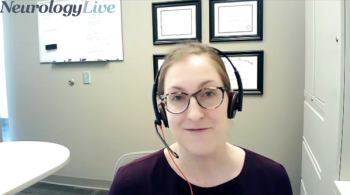
The child neurologist and neuroimmunologist at Nationwide Children’s Hospital delved into the unique challenges and research objectives surrounding MOG antibody–associated disease. [WATCH TIME: 3 minutes]

The child neurologist and neuroimmunologist at Nationwide Children’s Hospital provided clinical insight on the complexities of treating pediatric MOGAD, including treatment options, decision-making factors, and emerging therapies. [WATCH TIME: 4 minutes]
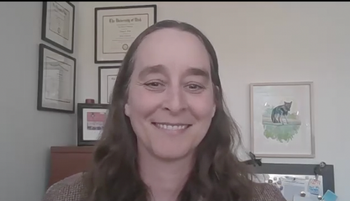
The assistant professor in the neurology department at the University of Utah in Salt Lake City discussed advancing personalized medicine for patients with neuromyelitis optica spectrum disorder, a rare disorder of the central nervous system. [WATCH TIME: 4 minutes]

The assistant professor in the neurology department at the University of Utah in Salt Lake City discussed the importance of addressing broader quality-of-life measures in patients with NMOSD beyond just preventing relapses. [WATCH TIME: 3 minutes]

The assistant professor in the neurology department at the University of Utah in Salt Lake City provided a clinical overview of the new and old therapies for NMOSD, and how clinicians should go about choosing for their patients. [WATCH TIME: 6 minutes]
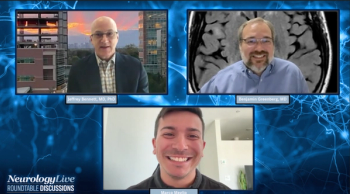
In this episode, a pair of neuroimmune experts discussed some of the emerging research for patients with MOGAD, highlighting the need for immunological markers, remodeling therapies, and enhancements to diagnostic criteria. [WATCH TIME: 5 minutes]

The pair of neurologists provided clinical insight on a number of lingering non-treatment unmet needs for patients with MOGAD, including improved care for pediatric patients and underreported complications like sleep disturbances and genitourinary issues in adults. [WATCH TIME: 5 minutes]

In this discussion, the pair of neurologists explore the latest drug development and ongoing clinical trials for MOGAD, a rare neuroimmune disorder. [WATCH TIME: 4 minutes]

In this segment, Bennett and Greenberg explore the diagnosis, acute treatment, and long-term management of MOGAD, highlighting current therapies and ongoing research. [WATCH TIME: 8 minutes]

In this episode, Greenberg and Bennett provide some perspective on the fluidity of MOGAD diagnosis and how it could potentially change over time as more is understood about neuroimmune disorders. [WATCH TIME: 5 minutes]

In this segment, the duo of neurologists provided a number of informative considerations treating clinicians should take when diagnosing MOGAD, emphasizing careful testing and interpretation of data in this complex process. [WATCH TIME: 4 minutes]
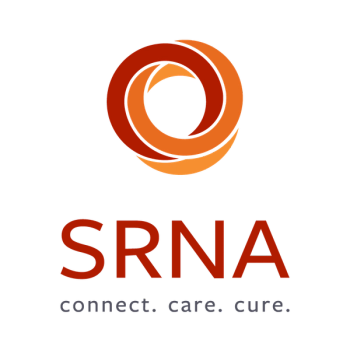
Benjamin Greenberg, MD, a pediatric neurologist at the University of Texas Southwestern Medical Center, provided commentary on a recently initiated online program dedicated to empowering those affected by rare neuroimmune disorders.
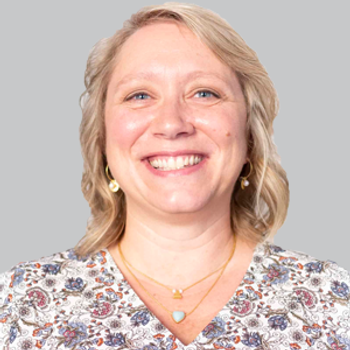
Rebecca Whitney, associate director of Programs and Community Support at SRNA and mother of child with a rare neuroimmune disorder, provided thoughts on the importance of caregivers and the role they play in everyday life.

The physician neurologist and neuroimmunologist at Cedars Sinai Medical Center discussed RNDS 2023, an educational event for Spanish-speaking patients with rare neuroimmune disorders.
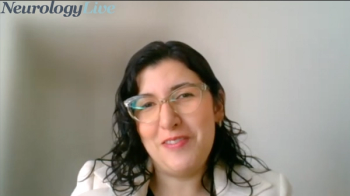
The physician neurologist and neuroimmunologist at Cedars Sinai Medical Center detailed the difficulties with discussing neuroimmune disorders with newly diagnosed patients, including those who may not speak English. [WATCH TIME: 3 minutes]
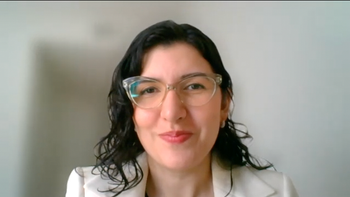
The physician neurologist and neuroimmunologist at Cedars Sinai Medical Center provided perspective on the patient-clinician relationships and the need to educate clinicians about the impacts of rare neuroimmune disorders in Spanish-speaking communities. [WATCH TIME: 3 minutes]
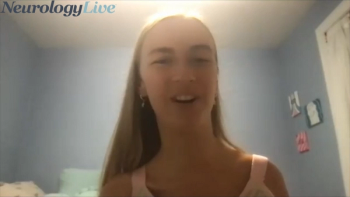
Hammer, a patient advocate living with acute flaccid myelitis, discussed the language around neurologic disability, and how the conversations should shift going forward. [WATCH TIME: 4 minutes]

After being diagnosed with acute flaccid myelitis more than 10 years ago, patient advocate Sarah Todd Hammer spoke on the ways in which disability should be viewed and discussed.
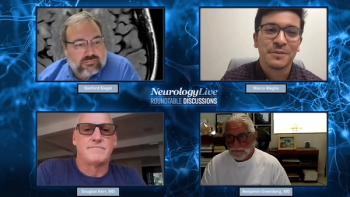
A panel of neurology experts detailed the importance that community leadership and creating a positive environment can do for patients with rare neurologic disorders [WATCH TIME: 5 minutes]
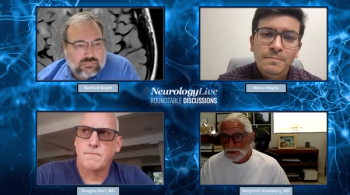
Sanford Siegel, Douglas Kerr, MD; and Benjamin Greenberg, MD, detailed the need for greater research on treatment strategies that repair myelin improve neurodegeneration, as well as expanded knowledge on how neuroimmune disorders present. [WATCH TIME: 5 minutes]
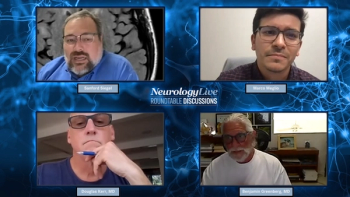
Benjamin Greenberg, MD; Douglas Kerr, MD; and Sanford Siegel provided perspectives on the gaps in the epidemiology and treatment paradigm for patients with rare neuroimmune disorders. [WATCH TIME: 3 minutes]
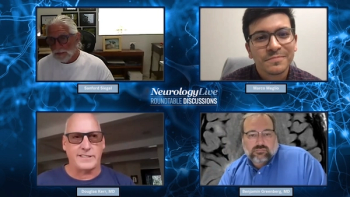
An expert neurology panel detailed some of the changes in therapeutic strategies and approaches to treating rare neuroimmune disorders, including the steps taken during the acute phase. [WATCH TIME: 6 minutes]
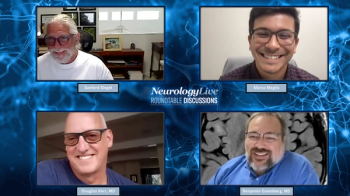
Several experts in neuroimmune disorders discuss the mechanisms of action that underlie these disorders, and how the perception of their pathology has changed. [WATCH TIME: 7 minutes]
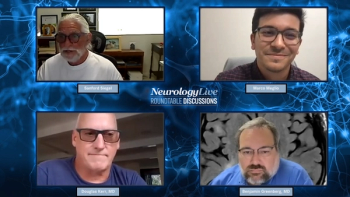
A group of panelists discussed the history of the Siegel Rare Neuroimmune Association, and the progress made on rare neuroimmune disorders in the nearly 30 years since its existence.
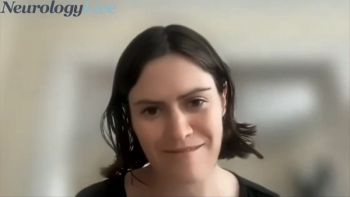
An immunology fellow at Brigham and Women’s Hospital provided perspective on the positive impacts a new diagnostic criterion for MOGAD brings to the clinical community. [WATCH TIME: 4 minutes]
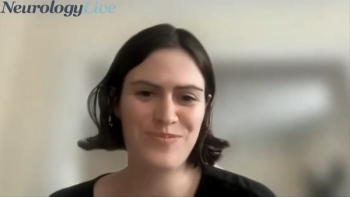
The immunology fellow at Brigham and Women’s Hospital discussed the current state of care for patients with MOGAD, and whether treatment decisions differ based on timing of attacks. [WATCH TIME: 7 minutes]
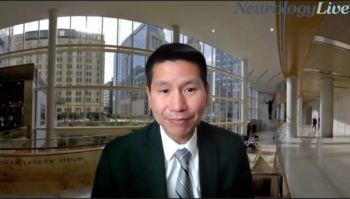
The neuroophtalmologist at Mayo Clinic detailed improvements in prescribing methods for NMOSD treatments and the conversations surrounding reversing neurodegeneration. [WATCH TIME: 3 minutes]

Anastasia Vishnevetsky, MD, an immunology fellow at Brigham and Women’s Hospital, provided insight on the latest research initiatives in MOG-antibody associated disease, including the potential for the first FDA-approved therapy.
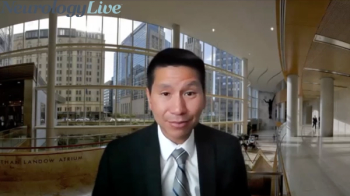
The neuroophthalmologist at Mayo Clinic discussed the current understanding of optic neuritis in neuromyelitis optica and the ways clinicians are working to improve recovery. [WATCH TIME: 4 minutes]